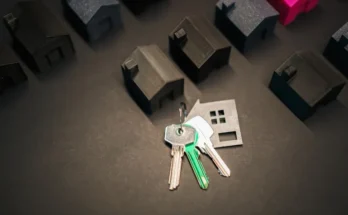Real estate has always been a cornerstone of human life—where we live, how we live, and what we invest in. Yet in recent years, the industry has been anything but static. A wave of transformation is sweeping through the world of property and land, changing how people buy, sell, invest, and even define “home.” Once grounded in tradition and local trends, real estate is now global, digital, and deeply influenced by evolving lifestyles.
The pandemic shook the very foundations of real estate, prompting millions to rethink their relationship with space. Cities emptied out while suburbs and small towns flourished. Remote work broke the tether between jobs and geography. Meanwhile, technology accelerated the pace of buying and selling, making once-slow transactions feel nearly instantaneous. And investors? They’re rewriting the rules altogether.
We are entering an era where real estate is more than an asset class—it’s a reflection of how people want to live, connect, and grow wealth.
The New Face of Homeownership:
The idea of a “forever home” is giving way to a more fluid concept of shelter. In today’s world, people crave flexibility and freedom. For some, that means tiny homes nestled in nature. For others, it’s the digital nomad lifestyle, hopping from city to city with short-term rentals and co-living spaces as their base.
Remote work has fundamentally shifted where people can live. Cities once favored for proximity to jobs are losing residents to smaller, more affordable towns that offer space, nature, and community. Home is no longer just where the heart is—it’s where the Wi-Fi is strong and the living is good. Younger generations, in particular, aren’t buying into the same dream their parents chased. Many view homeownership less as a status symbol and more as a strategic move—when and where it makes sense. Some are prioritizing travel, flexibility, and investments over mortgages and maintenance.
Investing in Property in the Modern Age:
-
Real Estate as a Portfolio Pillar
Property has always been one of the most dependable ways to build wealth. It offers stability, appreciation, and in many cases, income. But how people invest in real estate is changing. It’s no longer just about buying a home and watching its value grow. Today, investors are embracing diverse strategies: short-term rentals, multi-family units, commercial properties, and REITs (Real Estate Investment Trusts).
Technology has made these options more accessible. Real estate crowdfunding platforms allow average investors to buy shares in large developments with minimal capital. Investors can now participate in property markets across the globe without ever stepping foot in the buildings they help fund.
This democratization of real estate is reshaping who gets to play the game—and how the game is played.
-
Short-Term Rentals and the Airbnb Effect
Short-term rentals have disrupted traditional models of real estate income. Thanks to platforms like Airbnb and Vrbo, property owners can earn more by renting to travelers than they might from long-term tenants. This shift has turned ordinary homeowners into part-time hoteliers.
However, it’s not without challenges. Cities are cracking down on short-term rentals with zoning laws and licensing requirements to curb housing shortages and protect neighborhood character. Investors must navigate a rapidly changing regulatory environment if they want to succeed.
Still, for those who manage it well, short-term rentals offer flexibility, high returns, and a way to turn vacation destinations into investment opportunities.
The Digital Disruption of Real Estate:
-
Virtual Tours, Blockchain, and AI
The traditional model of real estate—open houses, in-person meetings, endless paperwork—is quickly giving way to digital alternatives. Virtual reality tours allow buyers to “walk through” homes from another continent. Blockchain technology is being explored to streamline title transfers and eliminate fraud. Artificial intelligence is helping match buyers with the perfect property, sometimes before they even know what they’re looking for.
Even real estate agents are changing their approach. Digital marketing, social media, and data analytics are becoming essential tools. Those who adapt thrive. Those who don’t risk being left behind in an industry where speed and convenience now rule.
-
Buying Property with a Click
Online platforms have made it possible to buy or invest in property with a few clicks. Startups are offering end-to-end digital transactions, from finding a home to getting a mortgage and signing the closing documents. Some platforms even use algorithms to predict which neighborhoods will appreciate fastest.
This ease of transaction is especially appealing to millennials and Gen Z buyers, who value transparency, speed, and autonomy. They want less gatekeeping and more empowerment.
Still, the digital transformation doesn’t remove the need for due diligence. Buying property remains a complex process, and technology—no matter how advanced—can’t replace local knowledge and expert advice.
Challenges and Opportunities in the Housing Market:
One of the biggest challenges facing real estate today is affordability. In many cities, housing prices have far outpaced income growth, creating barriers for first-time buyers and increasing pressure on rental markets. This divide is driving people to seek alternative housing solutions, such as co-living, modular homes, and multi-generational households.
On the flip side, the shift in demand is encouraging development in previously overlooked regions. Secondary cities are rising as hotbeds of innovation, culture, and opportunity. Infrastructure investment, lifestyle amenities, and cost-of-living advantages are drawing new residents and reshaping local economies.
Urban areas are also evolving. Mixed-use developments, walkable neighborhoods, and transit-oriented design are becoming key features. The future of housing is not just about where people live—it’s about how they live in relation to work, community, and the environment.
Conclusion:
Real estate is no longer just bricks and mortar—it’s a dynamic, living part of our economy, our culture, and our personal stories. It reflects how we earn, live, and dream. From smart homes and digital platforms to sustainable development and shifting lifestyles, the industry is evolving at lightning speed.
For buyers, it’s about finding a space that fits not only your budget, but your values. For investors, it’s about navigating risk while seizing opportunity. And for everyone, it’s about reimagining what real estate can mean in a world that never stops changing.
This is not just a market. It’s a movement. And the future belongs to those who are ready to build—not just homes, but legacies.




